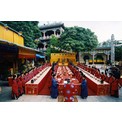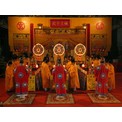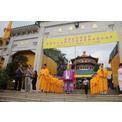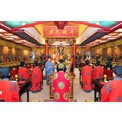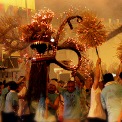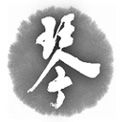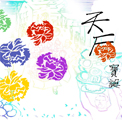 Collections
Collections The Oral Legacies (I) - Intangible Cultural Heritage of Hong Kong
The Oral Legacies (I) - Intangible Cultural Heritage of Hong Kong Quanzhen Temples Taoist Ritual Music
Quanzhen Temples Taoist Ritual Music Features of Quanzhen Temples Taoist Ritual Music
Features of Quanzhen Temples Taoist Ritual Music
In general, the Taoist rituals of the Hong Kong Quanzhen School can be divided into invocations for blessings (qingjiao) and requiem services (youjiao). The most common are Chao Ke – worshipping the gods; Chan Ke – repentance before the gods; Qi Fu Fa Shi – prayer rituals requesting blessings and boons; Du Wang Fa Shi –ceremony that expiates the sins of the dead; and the congregations held on Taoist festivals and birthdays of deities, as well as Taoists’ daily “morning and evening rites”.
The scripture chanters that partake in the ceremony each have their own respective roles at the altar: they are the High Priest (gaogong fashi) (chief), Chief Cantor (dujiang fashi) (second), Inspector of Fasts (jianzhai fashi) (third), altar attendants and casual attendants. The Quanzhen ritual music of Hong Kong is mainly made up of the vocals of jingyun, and in the forms of “reciting”, “intoning”, “chanting” and “singing”. The chief and second masters take the lead and set the pitch and tempo, while the second and third masters beat the woodblock (muyu) and singing bowl (qing) to control the rhythm of the music.
Apart from the jingyun sung by the scripture chanters and the congregation, Taoist music of Hong Kong is also distinguished by instrumental accompaniment that adapts to the vocal flow. This constitutes an important part of its instrumental music. Other features include the percussive announcement of the drum, the small cymbals and the gongs before the ritual at the altar begins, and the playing of set tunes with horizontal flute or suona during the silent interludes in the ritual when there is no singing and chanting but only gestures. Such instrumental music is played by scripture chanters, or by the Jiao masters specially hired for the occasion.
